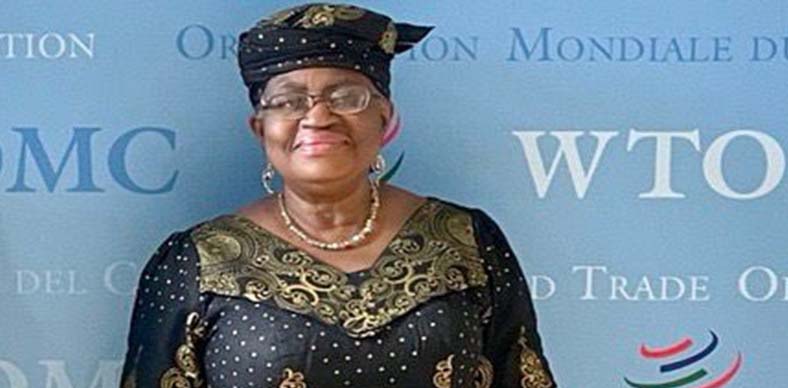The global trading system is facing a significant challenge in the form of newly imposed tariffs by the United States, potentially triggering a contraction in global trade and economic growth. Ngozi Okonjo-Iweala, the Director-General of the World Trade Organization (WTO), has voiced serious concerns about these developments, warning that the tariffs, coupled with other trade-restrictive measures introduced earlier this year, could lead to a substantial decline in global merchandise trade volumes. This contraction, estimated at around 1 percent, represents a sharp downward revision from previous projections, highlighting the severity of the situation and the potential for widespread economic repercussions. The imposition of these tariffs raises the specter of retaliatory measures from other countries, which could further escalate trade tensions and exacerbate the decline in global trade. Okonjo-Iweala emphasized the WTO’s role in monitoring the situation and engaging with member countries to address their concerns and mitigate the potential negative impacts.
The tariffs imposed by the US, including a 14 percent levy on goods from Nigeria, represent a departure from the principles of free and open trade that underpin the global trading system. These measures, introduced in April 2023 by then-President Donald Trump, have sparked widespread concern among WTO members, who fear a potential trade war and its cascading effects on global economic growth. Okonjo-Iweala’s warning underscores the gravity of the situation and the need for a coordinated international response to prevent a further deterioration of the global trading environment. The WTO’s initial estimates suggest a substantial impact on global trade volumes, signaling a potential slowdown in economic activity across various sectors. This underscores the interconnectedness of the global economy and the vulnerability of individual countries to protectionist measures.
One of the key concerns arising from the imposition of these tariffs is the potential for retaliatory actions by other countries. If affected countries respond by imposing their own tariffs on US goods, it could trigger a tit-for-tat escalation of trade restrictions, leading to a significant contraction in global trade. Such a scenario would disrupt supply chains, increase prices for consumers, and dampen economic growth across the globe. Okonjo-Iweala’s call for WTO members to collaborate and manage the situation responsibly highlights the importance of avoiding retaliatory measures and seeking constructive solutions through dialogue and cooperation. The WTO, as a platform for multilateral trade negotiations, plays a critical role in facilitating dialogue and preventing trade conflicts from escalating.
Despite the recent setbacks, Okonjo-Iweala emphasized that a significant portion of global trade still operates under the WTO’s Most-Favored-Nation (MFN) principle, which ensures non-discriminatory treatment among member countries. While the share of trade under MFN terms has declined from 80 percent at the beginning of the year to 74 percent following the imposition of the new tariffs, it remains a substantial proportion of global trade. This underscores the importance of preserving the MFN principle and preventing further erosion of the multilateral trading system. Okonjo-Iweala’s call for WTO members to stand together to safeguard these gains highlights the need for collective action to protect the principles of free and open trade.
The WTO, established to promote and regulate international trade, plays a crucial role in navigating these challenging times. Its mandate includes providing a platform for dialogue among member countries, preventing trade conflicts from escalating, and supporting an open and predictable trading environment. Okonjo-Iweala’s statement underscores the importance of the WTO’s role in mediating trade disputes and fostering cooperation among its members. The organization’s efforts to monitor the impact of the new tariffs and engage with member countries are essential to mitigating the potential negative consequences and preventing a further escalation of trade tensions. The WTO’s ability to effectively address this challenge will be critical to preserving the stability and integrity of the global trading system.
The current situation underscores the fragility of the global trading system and the importance of international cooperation to maintain its stability. The imposition of unilateral tariffs, as seen in this case, can have far-reaching consequences, disrupting trade flows, dampening economic growth, and escalating tensions between countries. Okonjo-Iweala’s warning serves as a reminder of the need for collective action to uphold the principles of free and open trade and to prevent protectionist measures from undermining the global economy. The WTO, as the primary international organization governing trade, plays a crucial role in facilitating dialogue, mediating disputes, and ensuring a predictable and rules-based trading environment. Its effectiveness in addressing this challenge will be instrumental in shaping the future of global trade and economic cooperation.


